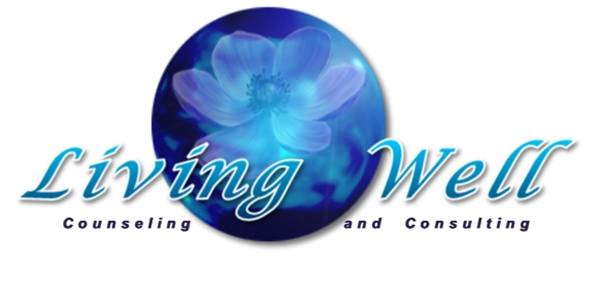 |
| Fear, Stress & Anger (Photo credit: Wikipedia) |
Some of the most fear provoking changes in life are centered around the four basic human fears: 1) rejection, 2) abandonment, 3) death and 4) dying. When significant losses or the anticipation of those losses tap into any one or more of these four fears, there is significant emotional response. Divorce is a change that taps into rejection and abandonment. It can be seen, especially by an abuse victim, as a devastating change. They don't know how they are going to face the financial, relational and parenting aspects of living on their own and usually have been convinced by the abuser that they are not able to take care of the aspects of life necessary to accomplish living apart from the abuser.
Taking individual situations into account, most of the time the fears are unjustified. Will the changes from married life to single life be difficult...yes. Are they impossible? No. Many individuals find that leaving an abusive relationship allows them the ability to grow and to have a life that they can control and be happy with. It is a difficult transition, as many changes are, but it is not an impossibility. One thing that is sure about life, there is always a way to do what you need to do. You may not like some of the decisions that you have to make to get there, but you can get there.
As we age, we face many changes that fall into the
categories of unknown or beyond our control.
We go through the process of children leaving the home; making the
adjustment to the “empty nest”. Other
people look at winding down their careers or have involuntarily been down sized
by their employer. Facing these changes
well often depends on where we have placed our personal identity. If we have solid internal identity, these types
of changes are often seen as challenges or positive transitions. It can be a very exciting time of adjustment. However, if a person has developed an
external identity, finding it in a specific role or in the opinions of others, this
change can be very difficult. This time
of change is usually centered on a large loss of purpose, or when the purpose
for which we have lived over many years is reduced significantly. Deep down, this stage of life can trigger in
to the fears of rejection or abandonment, producing a sense of being lost until
a person can adjust. Motivation comes
from purpose and significantly enhances our emotional health. Because of this, when facing transitions, it
is most important to maintain a focus toward true purpose that doesn’t fluctuate
with the roles we fill as we go through life.
FAMILY TRANSITIONS
Becoming an empty nester can be difficult if we have created our personal identity around being a parent. Parenting is a role that we move in and out of in life and it is not meant to be an identity for us. Loss of identity creates a kind of mid life crisis where we are not sure what to do with ourselves because the focus of our attention has moved on to start their own lives. This is the danger in creating our identity around a role...once the role ends, our purpose does as well. Purpose is a most important aspect of a human beings life. Purpose comes out of who we are, it creates a focus for our lives that is meaningful, fulfilling and satisfying. It can provide well being and good emotional health. When the hope of our purpose diminishes, we lose focus and structure in our lives. This is one of the most destructive aspects of abusive relationships, whether they be between a husband and wife or between a parent and a child. Abuse diminishes purpose, which in turn destroys motivation.
As a parent, it is our purpose to socialize and enable our children to live independent lives. As they grow older, we become less directive and take on more of a coaching position in their lives. We help them to figure out how to solve their problems rather than doing it for them. That is part of the role we fulfill rather than making it the full purpose of our lives.
CAREER TRANSITIONSFAMILY TRANSITIONS
Becoming an empty nester can be difficult if we have created our personal identity around being a parent. Parenting is a role that we move in and out of in life and it is not meant to be an identity for us. Loss of identity creates a kind of mid life crisis where we are not sure what to do with ourselves because the focus of our attention has moved on to start their own lives. This is the danger in creating our identity around a role...once the role ends, our purpose does as well. Purpose is a most important aspect of a human beings life. Purpose comes out of who we are, it creates a focus for our lives that is meaningful, fulfilling and satisfying. It can provide well being and good emotional health. When the hope of our purpose diminishes, we lose focus and structure in our lives. This is one of the most destructive aspects of abusive relationships, whether they be between a husband and wife or between a parent and a child. Abuse diminishes purpose, which in turn destroys motivation.
As a parent, it is our purpose to socialize and enable our children to live independent lives. As they grow older, we become less directive and take on more of a coaching position in their lives. We help them to figure out how to solve their problems rather than doing it for them. That is part of the role we fulfill rather than making it the full purpose of our lives.
When individuals change careers or retire, not only does
their role in life change, but often their relationships don’t go with
them. This can add to the stress of the
transition if it is not understood that some relationships truly only exist
because of the structure that surrounds them.
When we leave organizations, most
of the relationships that have been built within those environments are not
strong enough to exist outside of them if we have not done something to
strengthen them outside the forming structure.
Anticipating these changes, we can seek to move those relationships that
are important to us into a different level so they follow us after the change
goes into effect. This alone can help
make a transition more comforting.
Additionally, planning for a meaningful purpose after retirement can add
quality and significantly lengthen a person’s life.
DEATH AND DYING
For individuals who have aging parents requiring care and
assistance, these changes can be very difficult and stress producing on both
sides of the issue. It is never easy to
lose a parent and being a part of their dying process can be extremely difficult. They struggle with loss of independence, not
being able to fulfill their roles and again, loss of purpose which can bring on
negativity and depression.
No matter who we are, death changes us when we come close to
it. It causes us to recognize our own
mortality, assess our lives and question even fundamental spiritual beliefs. Knowing or not feeling confident in what
happens next can be a source of fear. Losing
a parent who we have not been close to ends the possibility of ever repairing
that relationship.
Although death and dying are a part of life, they are parts
that we are never well prepared for; bringing with them the loss of friends,
health and independence. The grief
process is unfamiliar and can take us by surprise as a result. It is not only a feeling, but it can carry with
it physical pain and an adjustment process.
People don’t like to talk about death and our close experiences with it
are commonly limited to the loss of parents and grandparents. The loss of a child is something that we are
never prepared for and it can be extremely traumatizing. We often think we know what it will be like
because after all, we’ve seen it over and over on TV. However, once it becomes a reality, it is
clear that Hollywood is not a good source of information.
Although difficult, questioning our mortality, evaluating
the quality of the relationships left in our lives and clarifying our spiritual
beliefs are all normal and good responses when death and dying enter center
stage in our lives. Helpful things we
can do for ourselves around the process include creating a strong support group,
as well as attending group and or individual counseling. Families can be a place of strength if the
internal relationships are of good quality. Personally, a strong spiritual faith is often
a viable source of comfort in difficult times. Outside the family, Hospice can provide
invaluable support for both the person going through the process and those
accompanying them. In preparation for
the loss, it is good advice to have a clear understanding of what a person’s
wishes are with regard to their dying process.
For the person entrusted with carrying out those wishes, it is a strong
place of comfort to have that knowledge as guidance.
In closing, as we face losing those closest to us in life,
the goal is really not to get back to normal because that isn’t possible. Instead we accept a new normal, which can be
a comforting goal. If we can come out on
the other side of this process with no regrets about decisions that were made, it
aids in going through the personal grief process. Keeping
in the forefront of our minds that this process is not about us, but about
helping our loved ones to finish well, it helps us focus on what is truly
important and we can grow into better people as a result.



